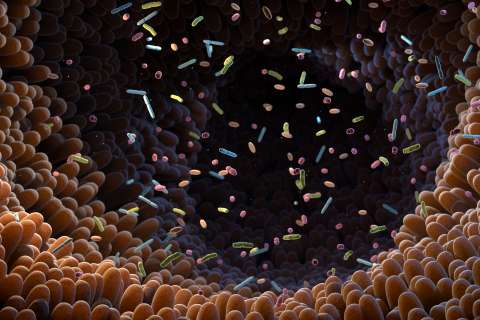Experts understand that addiction isn’t a weakness or moral failing; it’s an illness, much like cancer or heart disease. And It often falls to family members and friends to convince their addicted loved one to seek help. The task can feel like negotiating an emotional minefield with anger, obfuscation and denial among the likely outcomes. How do you know if there’s a problem, when do you intervene and how? Dr. Timothy Fong, associate clinical professor of psychiatry and director of the UCLA Addiction Medicine Clinic, provided guidance in the July 2015 issue of UCLA Magazine. An edited version of the article follows here.
A disease of denial
For as many as 50 percent of patients who visit UCLA’s addiction treatment clinics, the idea wasn’t their own, said Dr. Fong. Because this illness affects the brain, the person hooked on alcohol or drugs is often the last to recognize the symptoms and to seek out the help he needs. “With neuroscience, we’ve been able to show that the addict’s brain changes structurally, functionally, chemically and electrically — it’s operating differently,” said Fong. “The loss of control, intense urges, denial and lack of insight into the problem are signs of the brain dysfunction, just like chest pain and shortness of breath are signs of heart dysfunction. This is a disease in which a symptom is not being able to see the signs of the disease.”
Seeing the signs
The evidence isn’t always going to be right in your face. Is your friend or family member not acting like him or herself? No longer doing the things that make him or her happy? Acting anxious, irritable, unreliable, withdrawn? Then it’s certainly worth bringing up your concern, Fong said. But the reality, he added, is that most addicts aren’t so adept at keeping their problem out of plain view. “You can’t hide consequences,” Fong said. “You can’t hide lost opportunities or the neglecting of responsibilities or everything in your life starting to go south.” His simple advice: If you’re moved to ask whether there’s a problem, it likely means something not healthy is going on, and you should speak up.
Right place, right time
If you’re concerned about a loved one’s drinking or drug use, seeing him or her in a clearly intoxicated state may give you the urge to finally say something. But hold off. “Emotions are going to be running high on both sides — it just doesn’t make sense,” Fong said. Instead, wait until the individual is sober and you are in a quiet, neutral environment. Maybe it’s the two of you, maybe it’s the whole family, but be careful about putting the loved one on the defensive — at least at first. “We do from time to time encourage the kind of intervention you see on TV, where the person walks into the room and there’s a big surprise,” he said. “But that’s a pretty intense activity that I don’t recommend unless people have a professional facilitating it and they’ve exhausted all other approaches. On the other hand, a dinner in which all family members talk about how the person’s behavior makes them feel can be very powerful.”
All about ‘I’ — not ‘you’
“Focus on ‘I’ statements, not ‘you’ statements,” Fong said. “Saying ‘I’m worried that you have a drug problem’ is very different from saying, ‘You have a drug problem.’ “Avoid the use of “should” and “why” — statements like “You should stop drinking” or “Why do you have to always get high?” There’s often little we can say or do to change someone else’s behavior, but we can share how the behavior affects us: “I feel scared when I see you like that.” “I worry about your health.”
If at first you don’t succeed …
Given the power of denial and the instinct to resist, be prepared for your first attempt at coaxing a friend or family member to seek help to fall short. “The first way to crack through denial is to let the person know you’re worried,” said Fong. You may be told to back off when you initially suggest a professional evaluation, and that’s fine, he explained. Continue collecting information, talk with other friends or family members, and then maybe escalate the effort the next time by having reinforcements there to present their concerns.
Don’t be an enabler
Even if you can’t change the person’s behavior, don’t make it easier. If your son or daughter is abusing drugs and you control the purse strings — cut off access to your credit cards or stop making the car payments. If your spouse’s drinking is making you uncomfortable, don’t continue to participate in alcohol-centered activities, and don’t cover up when your spouse is sick the next day. Ultimately, you may need to send a more powerful message by sleeping in separate bedrooms or temporarily moving out of the house, Fong said.
Offer to be part of the solution
When approaching your friend or family member with your concerns, don’t criticize or judge. And when encouraging him or her to seek professional help, convey that you want to be involved in the solution. “This is a condition that should never be treated in isolation — we need to remove the stigma and involve a whole network of family and friends,” Fong said. “Ask if it would be all right to make an appointment and go together to see a professional about this. If a family member were being treated for cancer or a stroke, you would want to be there, and this is no different.”
Practice empathy
We hear much more today than in the past that addiction is a brain disease, but Fong suspects that most of us don’t fully appreciate what that means. “There’s still this false belief that it’s all about willpower — if you want it badly enough, you can change your behavior,” he said. “In reality, the natural functioning of the addict’s brain isn’t working, which means you have impairments in thinking and decision-making. And unless you’ve been there, it’s hard to understand what it’s like to go through an entire day constantly consumed with these urges and cravings.” His final piece of advice: Appreciating that this is a powerful disease — in the same way that cancer is a powerful disease — will go a long way toward making us more compassionate and helpful in the recovery process.
UCLA
Dr. Timothy Fon



